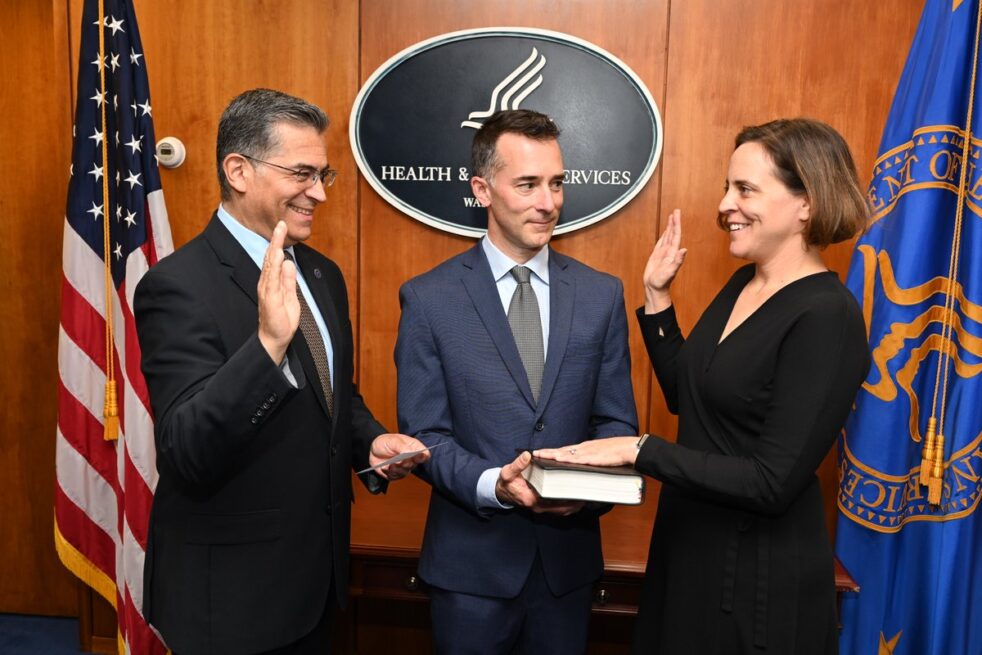On Sept. 26, 2023, the Advanced Research Projects Agency for Health (ARPA-H) provided notification for the creation of ARPANET-H, a nationwide health innovation network. ARPA-H is a special agency delineated under the U.S. Department of Health and Human Services (HHS) and ARPANET-H will operate in tandem with the presence of three ARPA-H regional hubs.
According to the press release, the establishment of the regional hubs is an effort by ARPA-H to account for the “diversity of people, settings and capabilities that encompass the American health ecosystem.” The primary focus of the new network will be coupling scientific discoveries with medical practices that are centered around bettering health outcomes for diverse patient populations.
Dr. Renee Wegrzyn is currently serving as the director for ARPA-H and assumed the role in 2022 following her appointment by President Joe Biden. Prior to this position, Wegrzyn was employed as the vice president of business development at Gingko Bioworks. According to her profile, “Wegrzyn comes to ARPA-H with experience working for two of the institutions that inspired the creation of the agency — the Defense Advanced Research Projects Agency (DARPA) and Intelligence Advanced Research Projects Activity (IARPA).”
Wegrzyn’s educational background can be traced back to the Institute. She received both her bachelor’s and doctoral degrees in applied biology from Tech and is one of the Institute’s notable alumni.
Wegrzyn provided the Technique with a statement highlighting the importance of ARPA-H and said, “Modeled after the unique and ambitious business practices of DARPA, ARPA-H serves a unique role in the health ecosystem that allows us to pursue high risk projects that have the potential to deliver asymmetrical advances in health, including [p]-residential priorities like the Biden Cancer Moonshot Initiative.”
ARPA-H was developed as a means to bolster the growth of biomedical research that directly develops sustainable and equitable health solutions. The operational model of ARPA-H utilizes program managers who lead teams of performers that focus on specific health-related issues. The program is unique in that measurement and evaluation are core tenets of each research focus, setting it apart from commercial research activity. The new network is an effort that aligns with President Biden’s Unity Agenda, a four-part program focused on cancer research, obligations to veterans, the national mental health crisis and opioid and overdose epidemic. The Institute is a large stakeholder in these new initiatives championed by the ARPA-H and the ARPANET-H.
“We recently announced a few new efforts that demonstrate the kinds of revolutionary concepts we are here to pursue that are too high risk for other public or private funding to pursue, but if successful, have the potential to change the trajectory of a given field or health care challenge. This includes the Cancer and Organ Degradome Atlas (CODA) project, led by the Georgia Institute of Technology, which focuses on mapping cancer cell biomarkers to help improve cancer detection rates at the very earliest stages of the disease,” Wegrzyn said.
Wegrzyn then described how ARPANET-H will incorporate the national goals of ARPA-H into their practices.
“We envision many ARPA-H programs and projects to work with the ARPANET-H hubs —depending on the needs of the programs, projects and the hub’s capabilities. That might be working with a hub in the same region as an OpenBAA awardee or with a hub or spoke in another geographic area. It’s one of the strengths of the evolving ARPANET-H, the ability to tap into the best resources whether it’s in your backyard or across the country.”
With the network’s aim to span across all 50 U.S. states, the project’s reach will be important in ensuring that states with under-resourced healthcare systems are included in the dialogue for health equity and advancement. According to St. George’s University, the functions and mechanisms behind the current healthcare system in the U.S. are resulting in 83 million people occupying regions regarded as Health Professional Shortage Areas (HPSAs). Additionally, according to the American Cancer Society, there were 1.9 million new cancer cases in the U.S. in 2022 alone, and chronic metabolic condition prevalence was estimated to be at 30% by the International Diabetes Federation (IDF). The consolidation of the network under ARPA-H will create a centralized system to address such challenges through medical research and scientific discovery.
Finally, reminiscing on her roots, Wegrzyn spoke of the relevance of Tech’s ideals in informing the mission of ARPA-H.
“As a former Yellow Jacket, the principles of ‘progress and service’ of the Georgia Tech motto come alive every day through our work at ARPA-H. It has been an eventful first year leading this new agency, and I’m so proud of the incredible team and culture we are building at ARPA-H and and am excited that Georgia Tech is a part of it,” Wegrzyn said.
